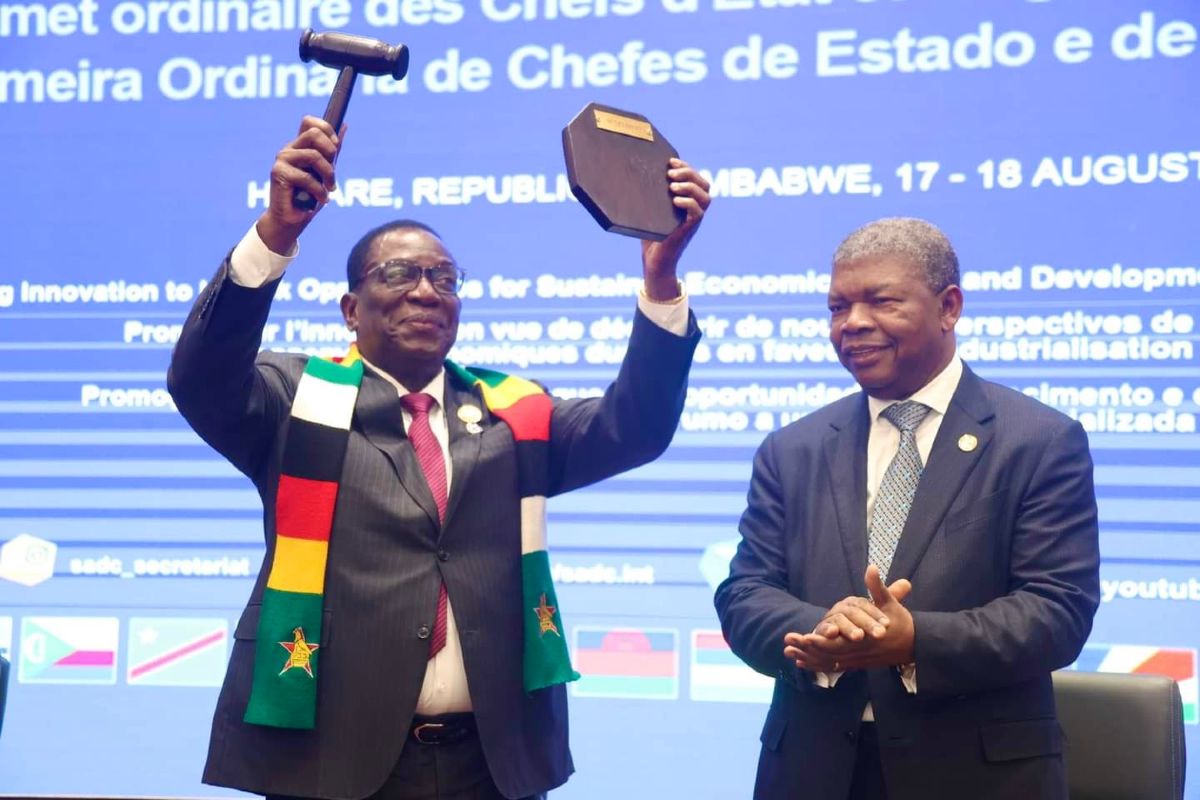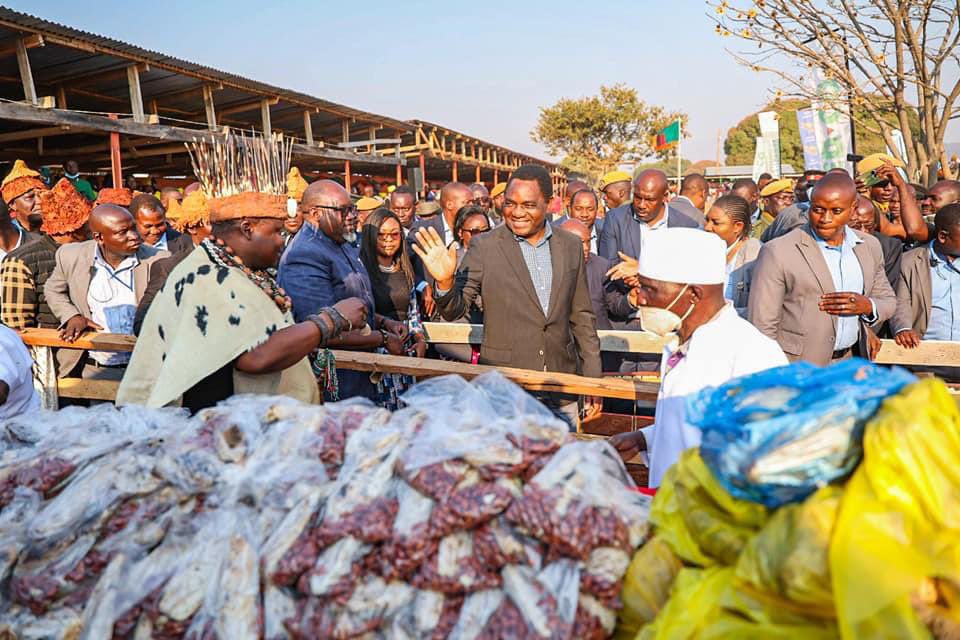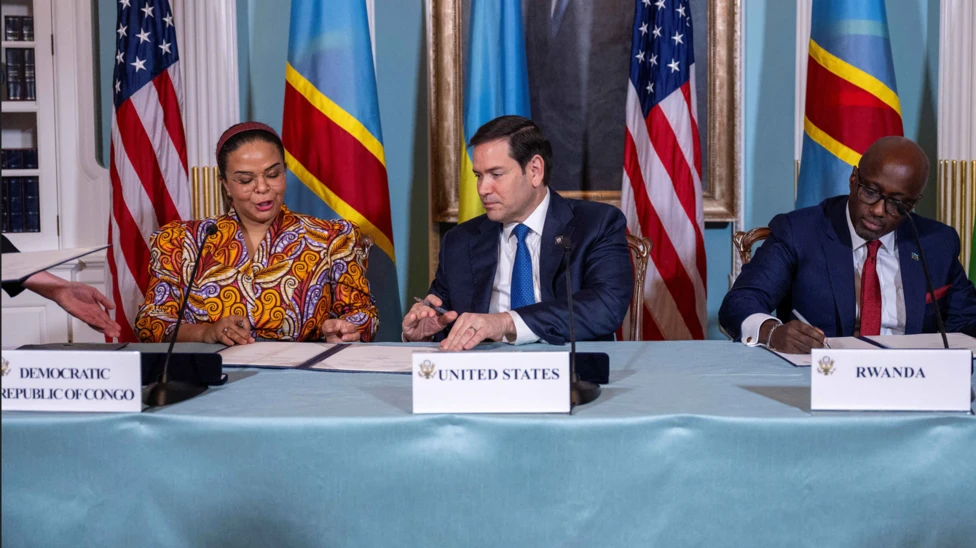HARARE – In absence, Zambian President Hichilema Hakainde cast a shadow at President Emmerson Mnangagwa’s parade on Saturday as he assumed the rotational chairmanship of SADC.
Mnangagwa had pulled all stops to ensure everything went smoothly, splurging millions in taxpayer funds on road repairs, engaging a Swiss company to build luxury villas to house regional leaders and also locking up over 120 political rivals to stymie planned protests.
To Mnangagwa’s embarrassment, the villas never got finished and only a handful of leaders required overnight accommodation in Harare anyway as some elected to arrive on the day of the summit including South Africa’s Cyril Ramaphosa, Mokgweetsi Masisi of Botswana and Filipe Nyusi of Mozambique.
An official government schedule had showed that all the leaders were expected to have arrived by Friday, the eve of the summit, including Hichilema who as outgoing chairman of the SADC Organ on Politics, Defence and Security Cooperation was due to preside over a meeting of the troika at 4PM that day alongside the leaders of Tanzania and Namibia.
Hichilema was a no-show and instead spoke via video connection from Lusaka. He was not coming to witness his legitimacy-seeking southern neighbour’s rehabilitating moment exactly a year after a SADC election monitoring team headed by a Zambian condemned Zimbabwe’s elections as failing to meet regional and international standards for democratic elections.
Leading up to the summit, there were already questions if he would attend amid tensions with Mnangagwa over comments he made to Russian leader Vladimir Putin in June, in which he suggested that Zambia was now a United States satellite state.
Mnangagwa had assumed his comments to Putin were private, but the Kremlin released a transcript and Russian state media journalists who were in the room published video of the two men’s meeting.
Through his foreign ministry, Hichilema sent letters of protest to the African Union and SADC.
Zambia said Mnangagwa’s comments were “an unwarranted attack on the country’s sovereignty” and called for “urgent and immediate intervention” by the African Union and SADC to defuse the tensions.
With no known intervention by the AU or SADC yet, Hichilema has avoided meeting Mnangagwa, including in July when he boycotted a three-nation wildlife conservation summit in Harare, attended by Nyusi and Mnangagwa. Hichilema sent his tourism minister instead.

Mnangagwa’s crackdown on rivals in the lead-up to the summit also saw regional leaders being lobbied to either change the venue to another country, or at least boycott the event. Hichilema already had an axe to grind with Mnangagwa, and many looked to him to inflict a measure of rebuke to the Zimbabwean leader, and he delivered.
Mnangagwa’s critics hailed Hichilema as a principled leader while a Zanu PF-controlled X handle labelled the Zambian leader a “puppet president,” appearing to double down on Mnangagwa’s controversial comments to Putin.
As Mnangagwa took over the SADC chair from Angola, Hichilema tweeted pictures of his trip to Chienge in Luapula province to attend the Builile Traditional Ceremony of the Bwile people, of Senior Chief Puta VIII.
“The ceremony beautifully reflects the richness, abundance and fertility of the land,” the Zambian leader enthused.
Opposition politician and Bulawayo mayor David Coltart, reacting to Hichilema’s post, thanked him for what he called his “dignified objection to the gross human rights abuses taking place in Zimbabwe.”
“This was an infinitely better place for you to be at today,” Coltart said.
Mnangagwa had asked the SADC leaders to stay on for a state dinner after the summit, and a tour of the controversial waste-to-energy Pomona project in Harare on Sunday. Only the leaders of Malawi, Angola, Madagascar and Namibia stayed for the feast.
Stephen Chan, a professor of world politics at SOAS, University of London, said on Hichilema’s no-show: “I take this as a pointed rebuke to Mnangagwa for slandering Zambia in front of Putin. Also, warts and all, and there are many warts, Zambia remains an open society. As the runup to the summit has shown, Zimbabwe is very much not.”
















